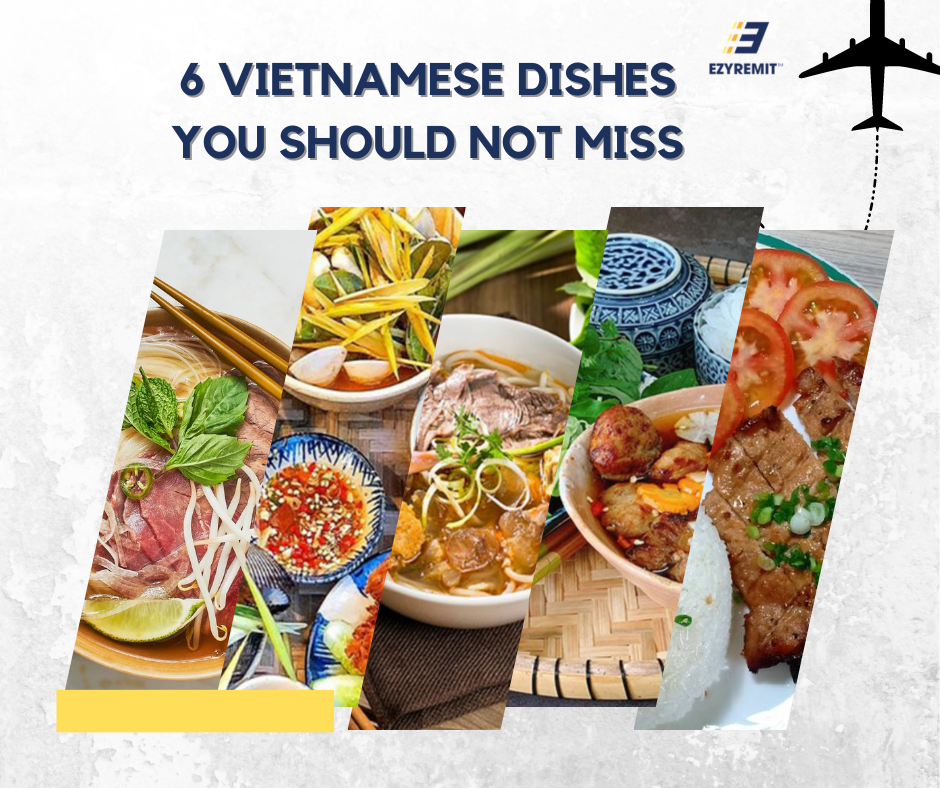Vietnam, a country known for its breathtaking landscapes, rich history, and delectable cuisine, has a cultural heritage deeply rooted in tradition and etiquette. For international travelers, understanding and respecting these customs is a sign of respect and a way to enhance your travel experience. In this article, we'll explore the intricacies of Vietnamese etiquette, providing insights and examples to ensure that your journey through this vibrant nation is not just memorable but respectful.
Vietnamese Etiquette
Vietnamese etiquette, often rooted in Confucian principles, encompasses a set of customs and traditions that govern social interactions, relationships, and daily life in Vietnam. It strongly emphasizes respect for elders, familial bonds, and maintaining harmony within the community. Understanding these customs is essential for travelers to appreciate the culture and to avoid unintentional cultural faux pas.
"In Vietnam, family is at the heart of everything. The way we greet each other and show respect to our elders is deeply ingrained in our culture. Even a simple gesture like a slight bow and a warm smile can go a long way in showing your respect and appreciation. It's not just about words; it's about your actions and body language." - Nguyen Van An, a local tour guide
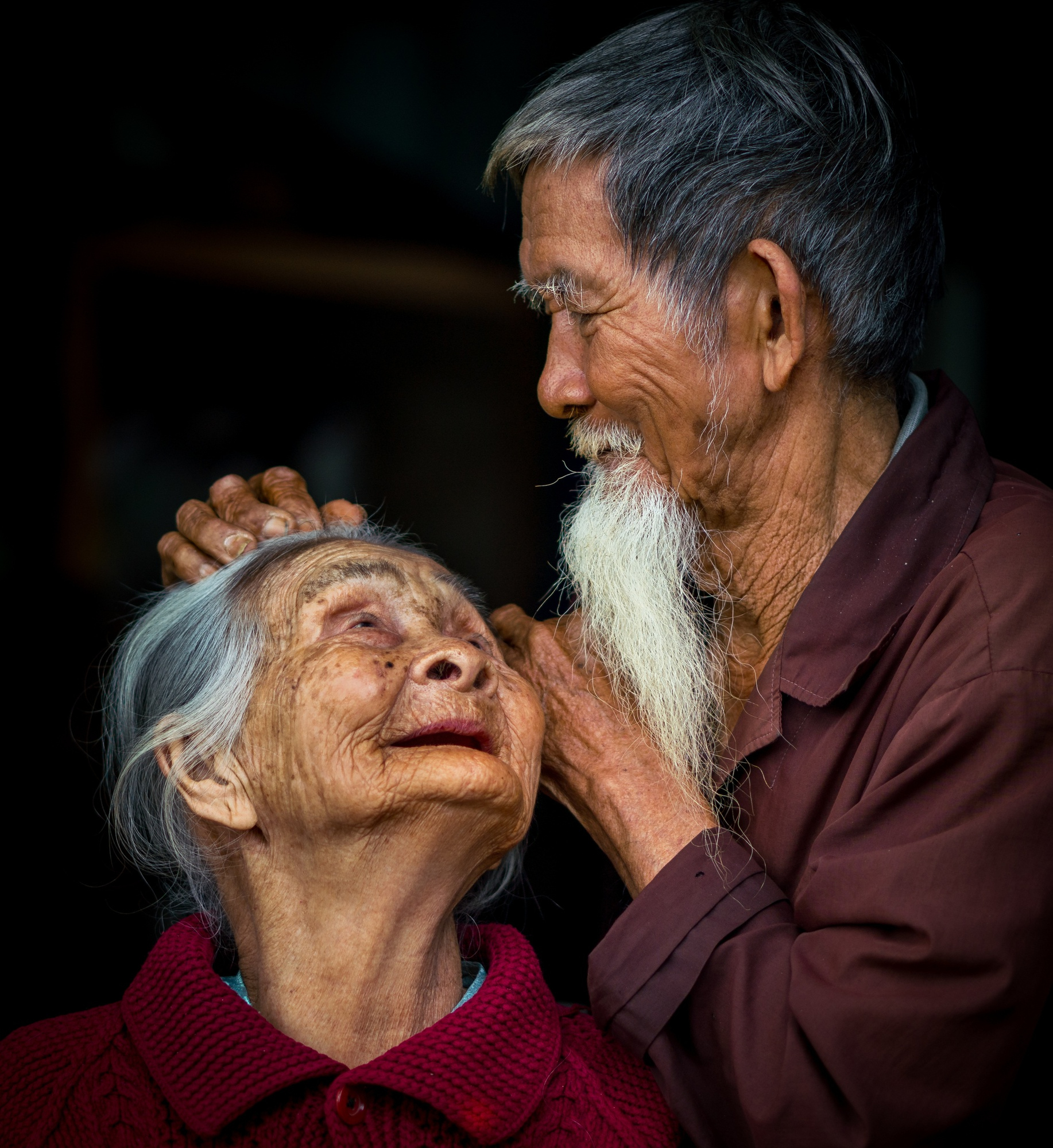
-
Greeting Etiquette:
In Vietnam, greetings are a significant aspect of daily life. The customary greeting involves bowing slightly and offering a friendly smile. When addressing someone older or of higher social status, the phrase "xin chào" (pronounced "sin chow") is used. It's important to use their title and surname, like "Anh" (for older brother) or "Chị" (for older sister) followed by their first name.
"When you greet someone in Vietnam, remember that the depth of your bow reflects the level of respect you're offering. A deeper bow is a sign of greater respect. For example, when meeting your partner's parents, a respectful bow shows that you honor their role in your partner's life." - Mai Linh, a Vietnamese etiquette expert

-
Dining Etiquette:
Vietnamese cuisine is celebrated worldwide for its flavors and freshness. When dining with locals, remember to wait until the eldest person at the table begins the meal before you start. Use both hands when passing dishes, and it's polite to serve others before serving yourself. Chopsticks are the primary eating utensils, and it's considered rude to play with them or point them at others.
"In Vietnam, meals are a time for bonding and sharing. It's not just about the food; it's about the company and conversation. When you follow these dining etiquettes, it shows you appreciate the communal aspect of our culture." - Phuong Nguyen, a Vietnamese chef
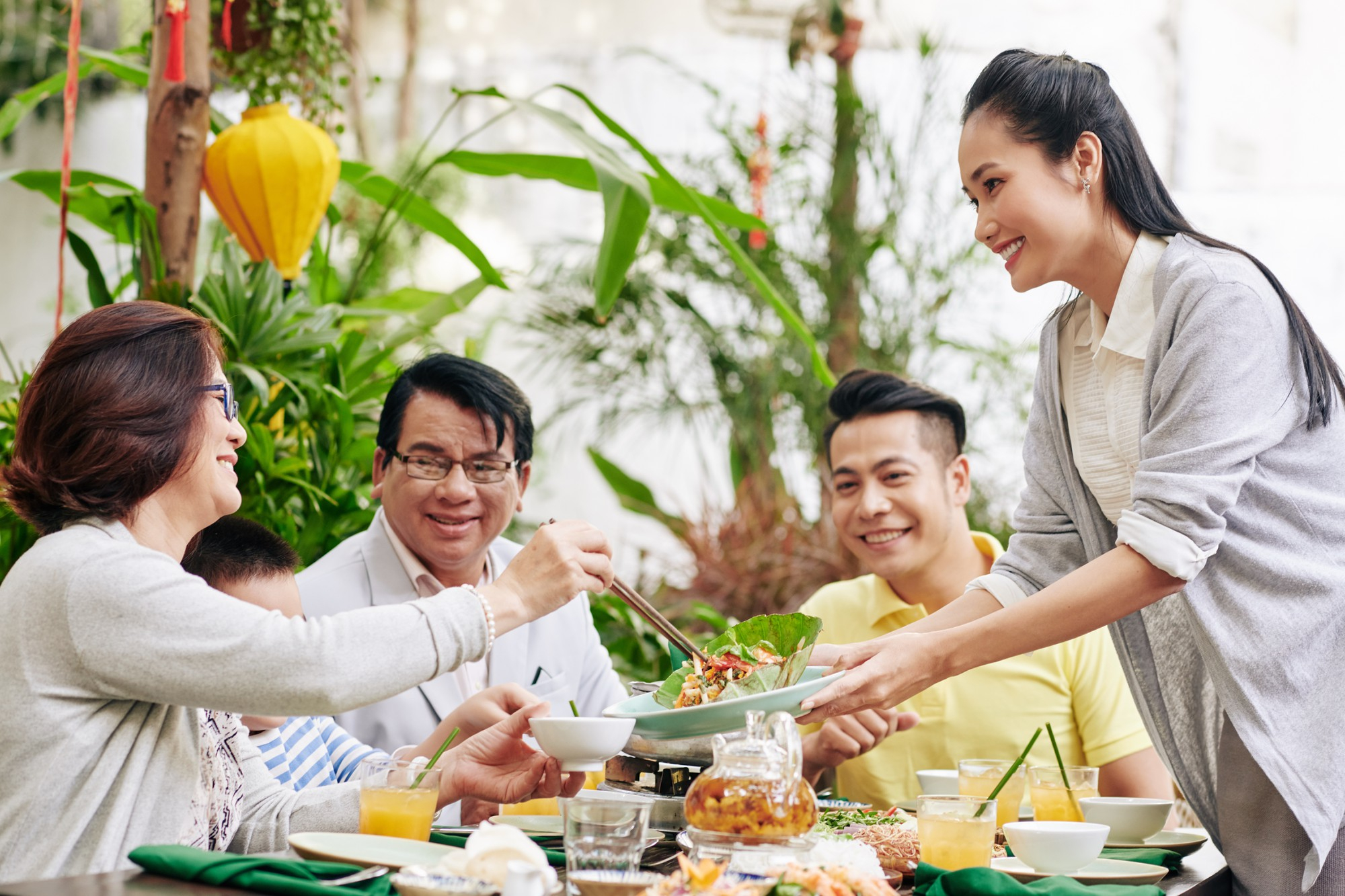
-
Temple and Pagoda Etiquette:
Vietnam boasts a multitude of ancient temples and pagodas, often places of serene spirituality. When visiting these sites, it's customary to dress modestly, covering your shoulders and knees. Be mindful of your volume, as loud conversations or laughter may be considered disrespectful. Always remove your shoes before entering these sacred spaces.
"When visiting our temples and pagodas, the key is to embrace the tranquility of the surroundings. It's about connecting with your inner self and respecting the sanctity of the place. Maintaining a sense of peace and silence is a mark of respect to the spiritual significance of these sites." - Thu Hoai, a Buddhist monk
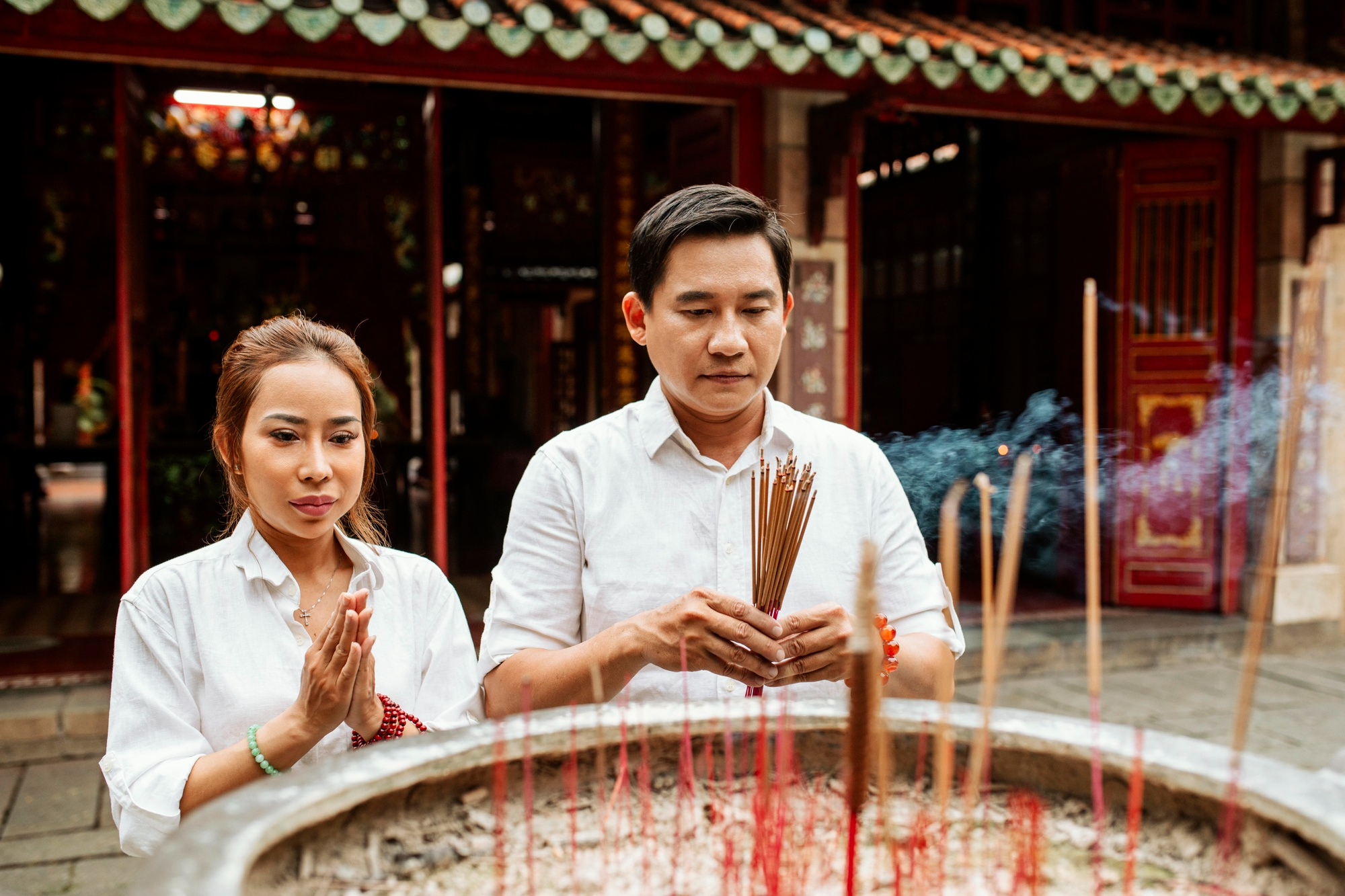
-
Gift-Giving Etiquette:
Gift-giving is a common practice in Vietnam, especially during festivals and family gatherings. When presenting a gift, use both hands and avoid expensive or extravagant gifts, as this may make the recipient uncomfortable. A thoughtful, small gift is often more appreciated.
"Gift-giving in Vietnam is a way to express gratitude and strengthen bonds. It's not about the value of the gift but the thought and sincerity behind it. A small, meaningful gift, such as a beautifully wrapped package of traditional sweets, can make a lasting impression." - Minh Trinh, a local artisan

-
The Art of ‘’Saving Face’’:
The concept of ‘’saving face’’ or we can say is "maintaining one's reputation" holds deep cultural significance in Vietnam. It's customary for Vietnamese individuals to refrain from engaging in public confrontations or actions that might tarnish their image. As a guideline, it's advisable to remain composed, avoid raising your voice in arguments, refrain from creating scenes, criticize others for errors, or highlight anything that might lead to embarrassment for the local people.

-
The Correct Way of Salutations:
In Vietnam, it's uncommon to use the phrase "excuse me." Instead, locals employ different variations of "Hey you!" while respecting social hierarchies. Use the following terms based on the person you are addressing:
- For a younger male or female - "Em ơi" /em oi/, where "em" denotes a younger sibling
- For an older woman - "Chị ơi" /chi oi/, with "chị" signifying an older sister
- For an older man - "Anh ơi" /An oi/, with "anh" representing an older brother
- For a woman old enough to be your aunt - "Cô ơi" /goh oi/
- For a man old enough to be your uncle - "Chú ơi" /choo oi/
- For a woman old enough to be your grandmother - "Bà ơi" /ba oi/
- For a man old enough to be your grandfather - "Ông ơi" /om oi/
Navigating these distinctions can be intricate, so when uncertain, a safe choice is to say "bạn ơi!" /bang oi/, which translates to "Hey friend!"
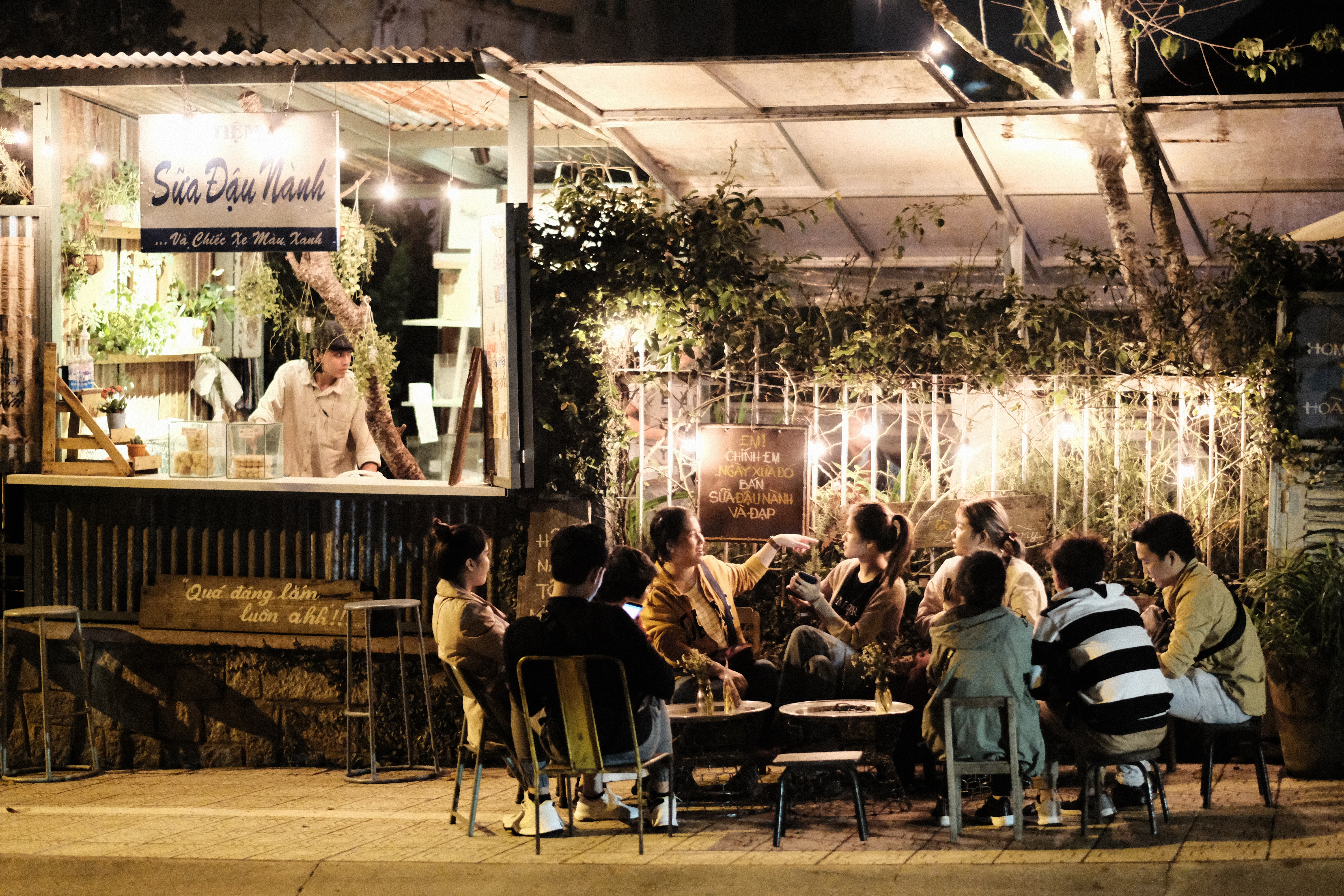
Conclusion
During your stay in Vietnam, immersing yourself in the local culture can be a captivating experience. Yet, managing finances while exploring this beautiful country can be a challenge. The intricacies of Vietnamese etiquette and navigating a foreign currency can seem daunting. That's where EzyTravel comes to the rescue, offering a hassle-free solution for travelers.
EzyTravel provides a secure and convenient way to handle your finances in Vietnam. With a cashless card for transactions and the option for cash delivery, you can explore the wonders of Vietnam with confidence, knowing that your financial needs are well taken care of. What's more, EzyTravel also offers the benefit of locking the exchange rate at the time of payment, ensuring that you get the most favorable rates during your transactions. This means you can make the most of your travel budget while experiencing the beauty and culture of Vietnam.
By embracing and understanding Vietnamese etiquette, you not only show respect for the culture but also open doors to meaningful interactions and experiences during your travels. The Vietnamese people are warm and welcoming, and your efforts to adhere to their customs will undoubtedly be appreciated. So, as you embark on your journey through Vietnam, remember to greet with a smile, dine with humility, and explore their cultural gems with reverence.
Read more: http://blog.ezyremit.com/lifestyle-and-culture/119-travel-insurance





